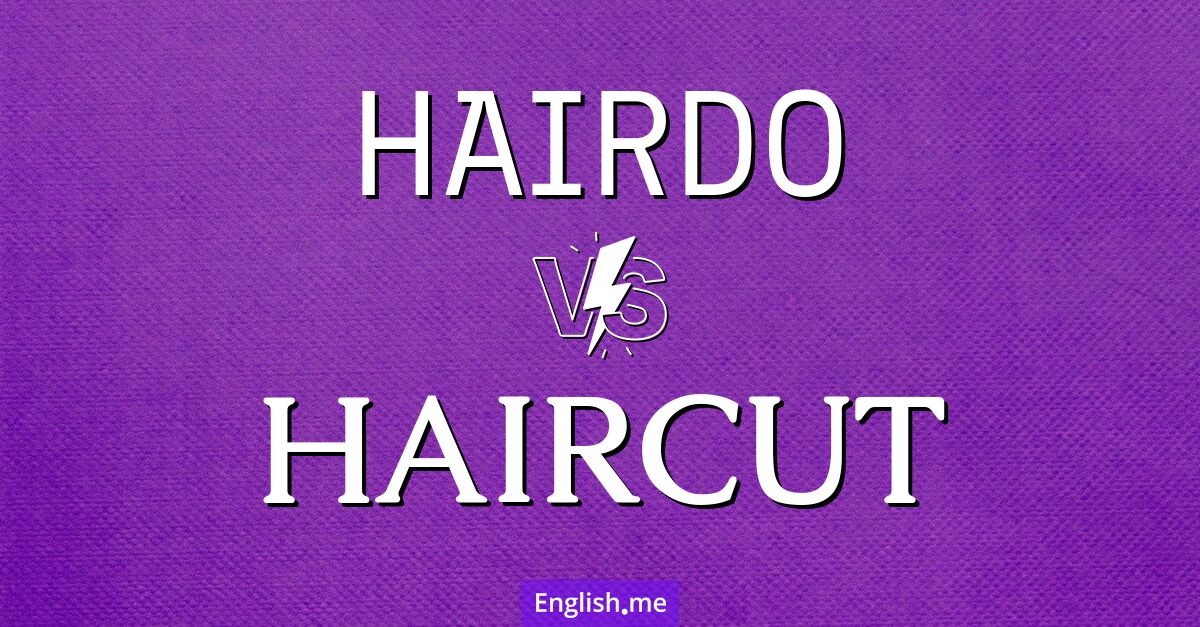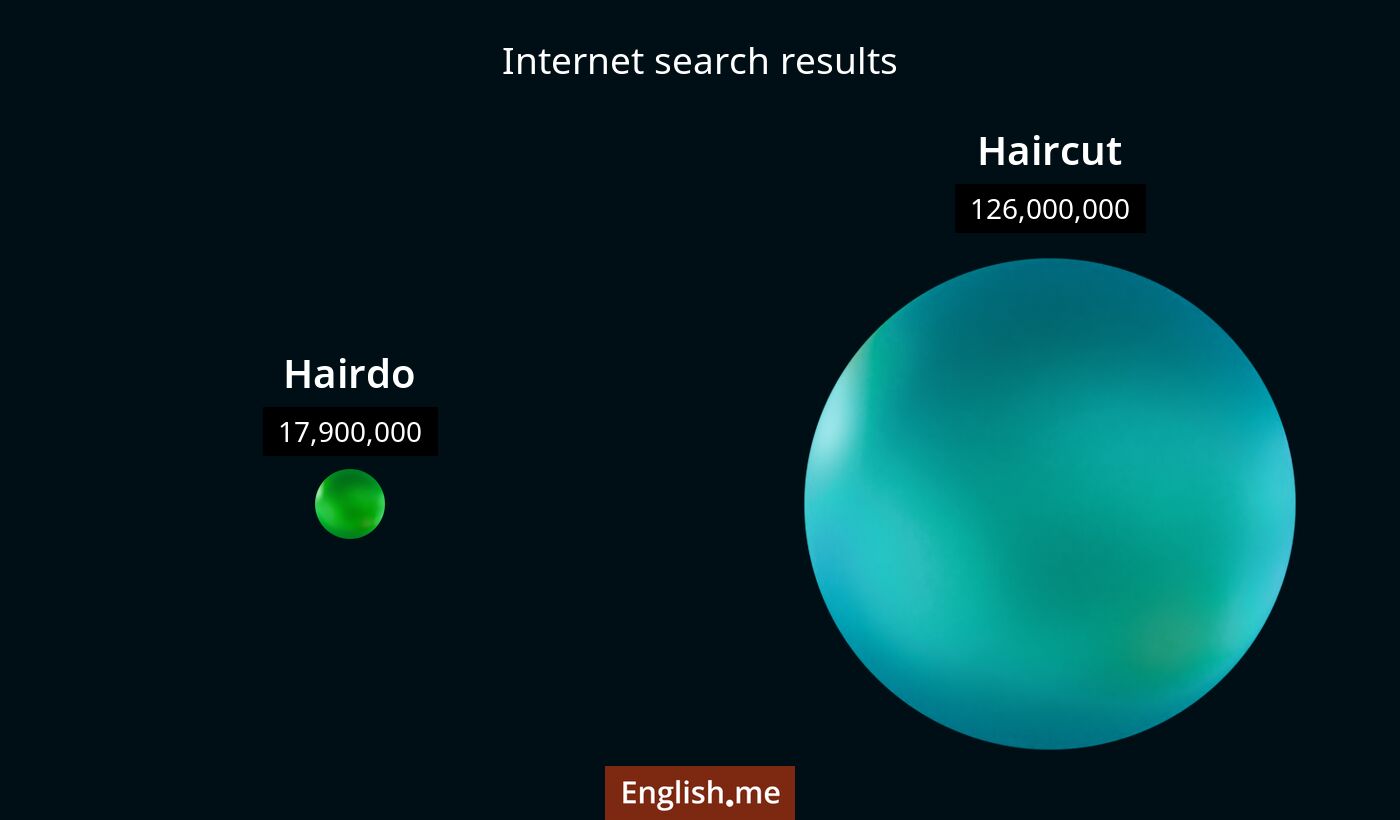"Hairdo" vs "haircut": cutting through the differences
Reviewed and edited by  Lloyd Cooper 25/12/2024, 23:46
Lloyd Cooper 25/12/2024, 23:46
English.me team member

 What is similar?
What is similar?
Both "hairdo" and "haircut" refer to the styling and appearance of hair on the head. They are terms used in the context of personal grooming and can describe the way someone's hair looks.
 What is different?
What is different?
"Haircut" primarily refers to the act of cutting hair or the style resulting from cutting hair. It often implies a change in hair length. "Hairdo" refers to the way hair is styled or arranged, which may not necessarily involve cutting. "Hairdo" can suggest a more elaborate or formal styling, especially for special occasions.
 Which one is more common?
Which one is more common?

 Examples of usage
Examples of usage
Hairdo- She spent hours perfecting her hairdo for the wedding.
- The stylist gave her an elegant hairdo for the gala.
- Her new hairdo caught everyone's attention at the party.
- He needs a haircut before the job interview.
- I just got a fresh haircut for the summer.
- She decided to try a shorter haircut.

 English
English español
español française
française italiano
italiano deutsche
deutsche 日本語
日本語 polski
polski česky
česky svenska
svenska Türkçe
Türkçe Nederlands
Nederlands